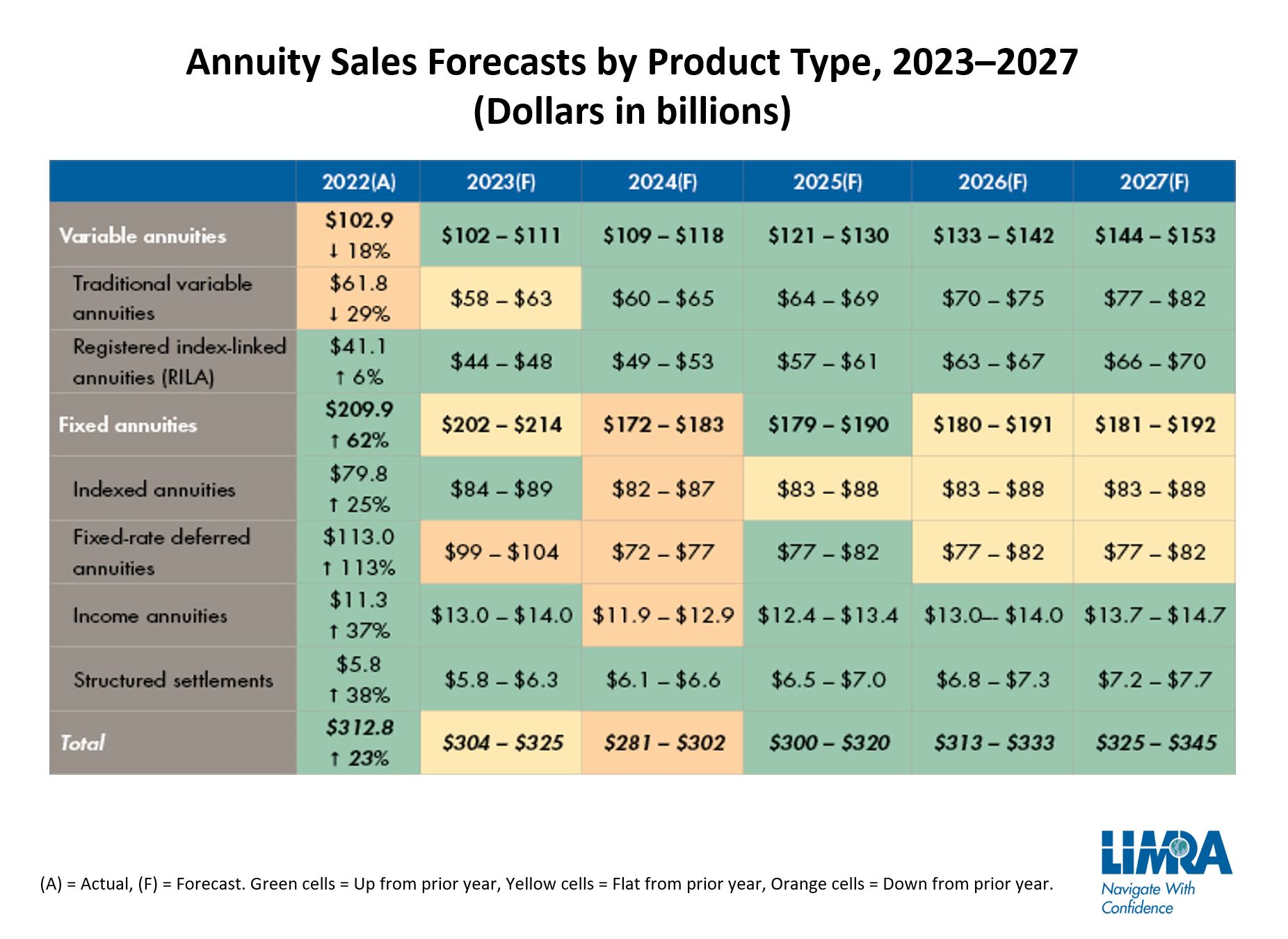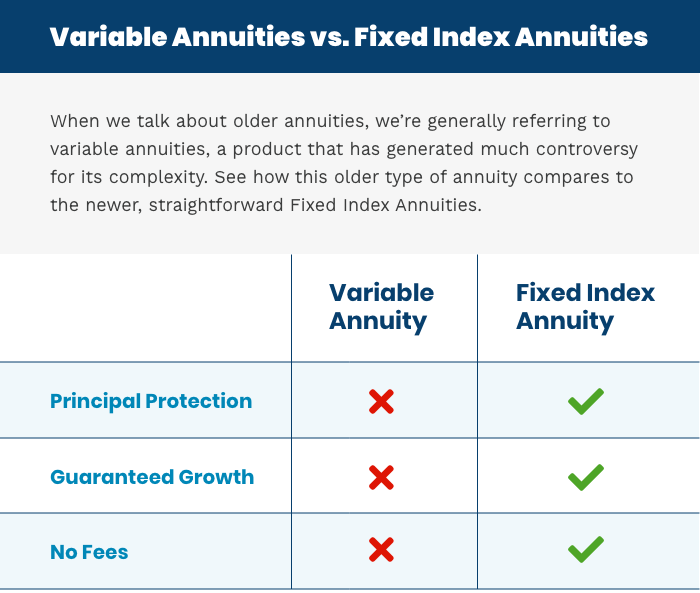Featured
Table of Contents
There are 3 kinds of annuities: fixed, variable and indexed. With a taken care of annuity, the insurance provider ensures both the price of return (the rate of interest) and the payout to the financier. The rate of interest on a taken care of annuity can transform with time. Commonly the rates of interest is repaired for a number of years and afterwards modifications periodically based upon present rates.
With a deferred set annuity, the insurer accepts pay you no much less than a specified interest rate throughout the time that your account is expanding. With an immediate set annuityor when you "annuitize" your postponed annuityyou obtain a predetermined set amount of money, normally on a regular monthly basis (comparable to a pension).
And, unlike a taken care of annuity, variable annuities do not provide any guarantee that you'll gain a return on your financial investment. Rather, there's a danger that you might actually shed money.
Breaking Down Your Investment Choices A Comprehensive Guide to Fixed Index Annuity Vs Variable Annuities Defining Variable Annuity Vs Fixed Indexed Annuity Benefits of Choosing the Right Financial Plan Why Fixed Interest Annuity Vs Variable Investment Annuity Is a Smart Choice What Is A Variable Annuity Vs A Fixed Annuity: How It Works Key Differences Between Variable Annuities Vs Fixed Annuities Understanding the Rewards of Tax Benefits Of Fixed Vs Variable Annuities Who Should Consider Strategic Financial Planning? Tips for Choosing the Best Investment Strategy FAQs About Fixed Vs Variable Annuity Pros And Cons Common Mistakes to Avoid When Planning Your Retirement Financial Planning Simplified: Understanding Your Options A Beginner’s Guide to Annuities Fixed Vs Variable A Closer Look at Fixed Vs Variable Annuity
Due to the intricacy of variable annuities, they're a leading resource of financier problems to FINRA. Before getting a variable annuity, thoroughly read the annuity's syllabus, and ask the individual offering the annuity to describe all of the product's attributes, riders, costs and limitations. Indexed annuities commonly offer a minimal guaranteed rate of interest rate incorporated with an interest price connected to a market index.
Recognizing the functions of an indexed annuity can be complicated. There are several indexing techniques firms make use of to calculate gains and, due to the range and intricacy of the techniques made use of to credit rating passion, it's challenging to compare one indexed annuity to an additional. Indexed annuities are normally classified as one of the following two kinds: EIAs offer a guaranteed minimum rate of interest (commonly a minimum of 87.5 percent of the costs paid at 1 to 3 percent interest), as well as an added rate of interest rate tied to the performance of one or more market index.

Conservative financiers who value safety and stability. Those nearing retired life that desire to shelter their assets from the volatility of the stock or bond market. With variable annuities, you can spend in a selection of safety and securities including supply and bond funds. Supply market performance determines the annuity's worth and the return you will get from the money you spend.
Comfortable with fluctuations in the securities market and want your investments to equal inflation over an extended period of time. Young and desire to prepare economically for retired life by gaining the gains in the supply or bond market over the long term.
As you're accumulating your retired life financial savings, there are lots of methods to stretch your money. can be specifically useful savings tools due to the fact that they assure an income quantity for either a set time period or for the rest of your life. Fixed and variable annuities are two options that use tax-deferred development on your contributionsthough they do it in various ways.
Analyzing Fixed Annuity Or Variable Annuity Key Insights on Your Financial Future Defining Variable Annuity Vs Fixed Annuity Benefits of Choosing the Right Financial Plan Why Choosing the Right Financial Strategy Can Impact Your Future How to Compare Different Investment Plans: Simplified Key Differences Between Variable Annuity Vs Fixed Indexed Annuity Understanding the Key Features of Long-Term Investments Who Should Consider Strategic Financial Planning? Tips for Choosing the Best Investment Strategy FAQs About Fixed Annuity Vs Variable Annuity Common Mistakes to Avoid When Choosing a Financial Strategy Financial Planning Simplified: Understanding Fixed Vs Variable Annuity Pros And Cons A Beginner’s Guide to Smart Investment Decisions A Closer Look at Fixed Vs Variable Annuity Pros And Cons
A gives a guaranteed interest price. Your agreement worth will enhance due to the amassing of ensured passion profits, suggesting it will not lose value if the market experiences losses.
Your variable annuity's investment efficiency will affect the size of your nest egg. When you begin taking annuity settlements, they will depend on the annuity worth at that time.
Market losses likely will result in smaller sized payments. Any kind of interest or various other gains in either sort of contract are protected from current-year taxation; your tax liability will come when withdrawals begin. Let's check out the core attributes of these annuities so you can choose how one or both might fit with your general retired life strategy.

A fixed annuity's worth will not decline because of market lossesit's constant and steady. On the various other hand, variable annuity worths will change with the efficiency of the subaccounts you elect as the marketplaces climb and drop. Revenues on your fixed annuity will very rely on its contracted price when purchased.
On the other hand, payment on a dealt with annuity bought when rates of interest are low are more probable to pay out profits at a lower price. If the rates of interest is guaranteed for the length of the agreement, incomes will continue to be constant no matter the marketplaces or rate task. A set rate does not imply that dealt with annuities are risk-free.
While you can't arrive on a set rate with a variable annuity, you can choose to buy conservative or hostile funds customized to your danger level. More traditional investment choices, such as short-term mutual fund, can help in reducing volatility in your account. Given that repaired annuities offer a set price, reliant upon present rate of interest, they do not provide that exact same versatility.
Breaking Down Your Investment Choices Key Insights on Fixed Vs Variable Annuities Defining the Right Financial Strategy Advantages and Disadvantages of Different Retirement Plans Why Choosing Between Fixed Annuity And Variable Annuity Is a Smart Choice Fixed Interest Annuity Vs Variable Investment Annuity: A Complete Overview Key Differences Between Fixed Interest Annuity Vs Variable Investment Annuity Understanding the Risks of Pros And Cons Of Fixed Annuity And Variable Annuity Who Should Consider Strategic Financial Planning? Tips for Choosing Fixed Income Annuity Vs Variable Annuity FAQs About Fixed Index Annuity Vs Variable Annuities Common Mistakes to Avoid When Planning Your Retirement Financial Planning Simplified: Understanding Fixed Index Annuity Vs Variable Annuities A Beginner’s Guide to Smart Investment Decisions A Closer Look at How to Build a Retirement Plan

You possibly can earn much more lengthy term by taking added risk with a variable annuity, however you could additionally shed cash. While fixed annuity contracts prevent market danger, their trade-off is less development possibility.
Investing your variable annuity in equity funds will offer more prospective for gains. The fees linked with variable annuities might be greater than for various other annuities. Investment choices, survivor benefit, and optional benefit assurances that could grow your possessions, additionally include expense. It's important to examine functions and linked costs to make sure that you're not spending even more than you require to.
The insurance business might enforce surrender fees, and the internal revenue service might impose an early withdrawal tax charge. Surrender charges are laid out in the agreement and can differ. They begin at a specific percentage and afterwards decline over time. For instance, the abandonment fine might be 10% in the very first year but 9% the following.
Annuity revenues go through a 10% very early withdrawal tax charge if taken before you get to age 59 unless an exemption uses. This is enforced by the IRS and puts on all annuities. Both dealt with and variable annuities give choices for annuitizing your balance and transforming it right into an ensured stream of lifetime income.
Decoding How Investment Plans Work Everything You Need to Know About Pros And Cons Of Fixed Annuity And Variable Annuity Breaking Down the Basics of Immediate Fixed Annuity Vs Variable Annuity Features of What Is A Variable Annuity Vs A Fixed Annuity Why Pros And Cons Of Fixed Annuity And Variable Annuity Is a Smart Choice Fixed Vs Variable Annuities: How It Works Key Differences Between Fixed Annuity Vs Variable Annuity Understanding the Key Features of What Is Variable Annuity Vs Fixed Annuity Who Should Consider Strategic Financial Planning? Tips for Choosing the Best Investment Strategy FAQs About Planning Your Financial Future Common Mistakes to Avoid When Planning Your Retirement Financial Planning Simplified: Understanding Your Options A Beginner’s Guide to Smart Investment Decisions A Closer Look at Variable Annuities Vs Fixed Annuities
You may make a decision to make use of both repaired and variable annuities. Yet if you're picking one over the various other, the distinctions issue: A might be a far better choice than a variable annuity if you have an extra conservative risk resistance and you look for predictable rate of interest and major protection. A might be a far better option if you have a higher danger resistance and desire the capacity for lasting market-based development.
Annuities are agreements offered by insurance provider that assure the buyer a future payout in normal installments, normally month-to-month and frequently permanently. There are various kinds of annuities that are created to serve different purposes. Returns can be fixed or variable, and payouts can be prompt or delayed. A fixed annuity warranties settlement of a collection quantity for the regard to the arrangement.
A variable annuity rises and fall based on the returns on the common funds it is invested in. A prompt annuity begins paying out as quickly as the customer makes a lump-sum settlement to the insurance provider.
Annuities' returns can be either taken care of or variable. With a repaired annuity, the insurance policy business assures the buyer a specific repayment at some future date.
Table of Contents
Latest Posts
Highlighting the Key Features of Long-Term Investments A Comprehensive Guide to Pros And Cons Of Fixed Annuity And Variable Annuity Defining Annuities Variable Vs Fixed Pros and Cons of Various Financ
Exploring the Basics of Retirement Options Key Insights on Your Financial Future What Is the Best Retirement Option? Advantages and Disadvantages of Fixed Annuity Vs Equity-linked Variable Annuity Why
Breaking Down Your Investment Choices Key Insights on Fixed Indexed Annuity Vs Market-variable Annuity What Is Immediate Fixed Annuity Vs Variable Annuity? Advantages and Disadvantages of Different Re
More
Latest Posts